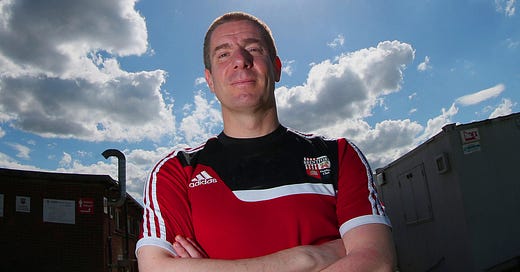The Sports Gambler Who Turned $700k Into $300M
Brentford FC won the "World's Richest Game" this past weekend, but their belief in analytics is even more interesting.
Friends,
Brentford FC beat Swansea this past Saturday in the “World’s Richest Game” — the Championship Play-Off Final — earning the Bees a promotion to the English Premier League and the roughly $300 million in guaranteed money that comes with it.
Even more interesting?
Less than a decade ago, with the club facing financial stress, a professional sports ga…


